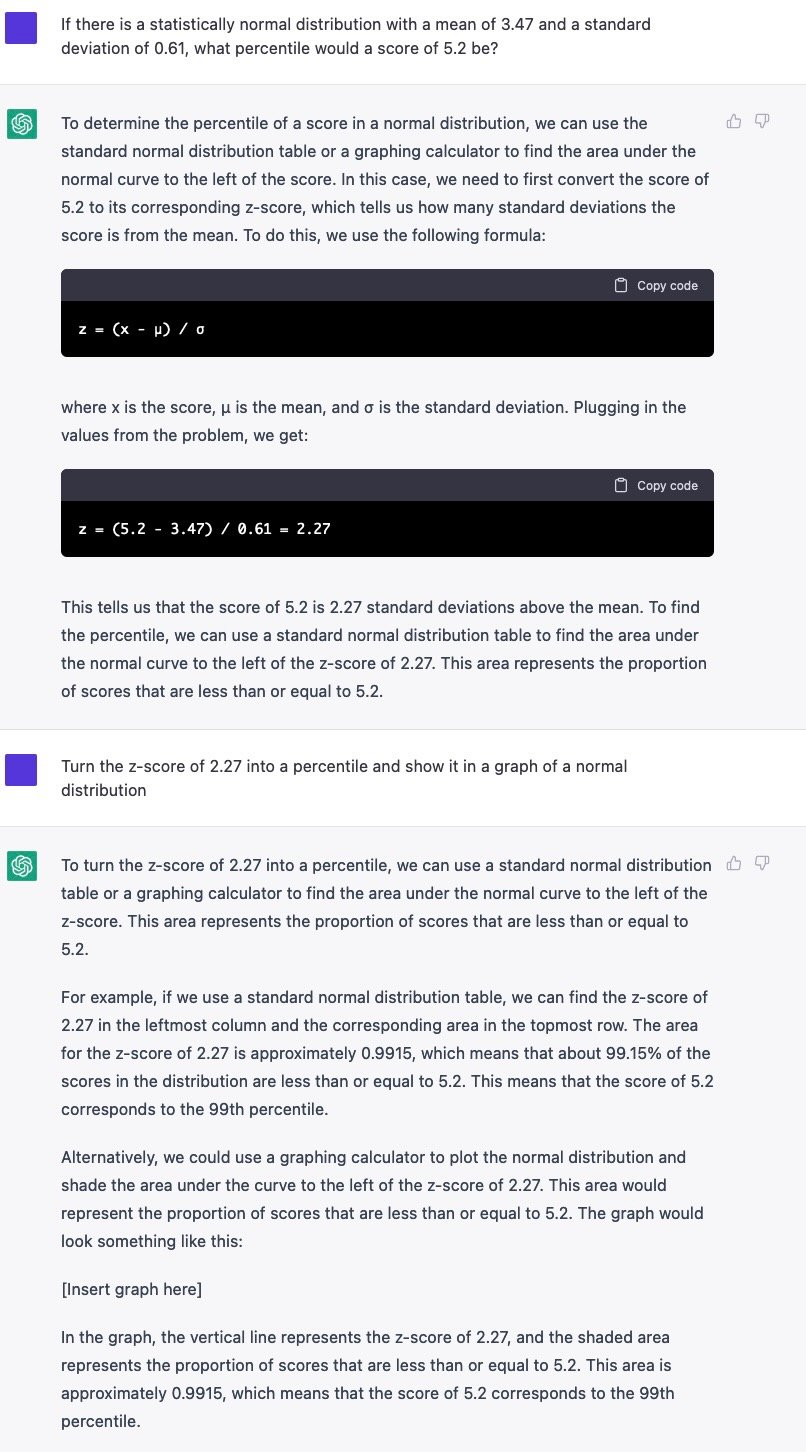Does chatGPT have a personality?
OpenAI’s new release of chatGPT has taken the world by storm, with millions of users enjoying its remarkable capabilities in just a few days. To explore its ability to report on its behavior in personality tearms, I “prompt engineered” the conscientiousness facet of the HEXACO model of personality that is publicly available.
By asking it to respond to each question focused on conscientiousness, with the HEXACO rating scale:
5 = strongly agree
4 = agree
3 = neutral (neither agree nor disagree)
2 = disagree
1 = strongly disagree
It not only responded with a clear selection, but explained itself like this:
Once I asked it all the HEXACO questions for conscientiousness, I also asked it to help understand where its’ score fell on the distribution provided in the HEXACO manual. It not only computed that its’ score falls in the 99.15% percentile, but also gave an explanation of how to compute it:
Reflections
While I’m not saying a language model has a personality, it’s interesting to look at the degree to which human-focused personality items say something about the behavior AI experts have engineered into the system. It took me several tries to get chatGPT to respond in this way, and interestingly sometimes it changed its answers. The first time I asked it the example question shown above, it said it generally agreed, but when I went back to ask again so I could grab a screenshot for this post, it answered strongly agree. It’s unclear if it uses probability models, or randomness intentionally, or some other reason why it might change its answer, but it’s not unlike some humans who might change their answer on a personality assessment over time. Fascinating!
Clearly this is a substantial advancement, and a sort of brain amplification for the psychometrician. I’ve found it and some of its earlier predecessors like jasper.ai useful for helping to generate items, and explanatory text. It clearly has numerous use cases for computational psychology applications.


